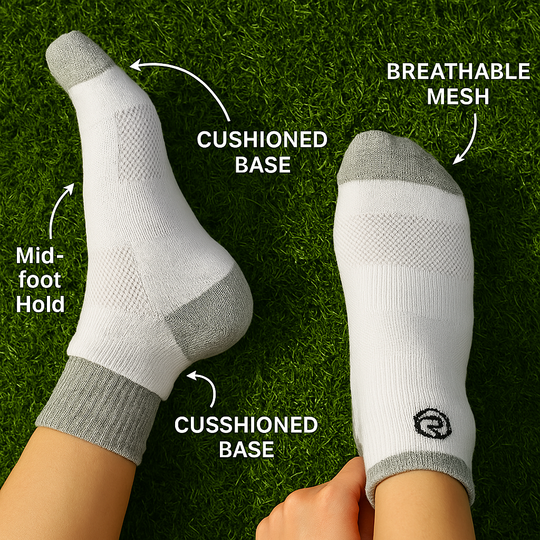11 Marathon Training Strategies for Beginners
Date
Duration
4 min read

Do you want to run a marathon? Jump for joy because this might be one of the best decisions that you’ve ever taken! Ready to get started? In this blog, you will find everything you need to know!
As a beginner, you might start with a local 5k, because if you’re new to running, it may take a bit of buildup to get to the point that you feel completely confident about running 10ks and that’s going to be an amazing accomplishment! While progressing, you will improve as a runner, become healthier overall, and probably make some interesting friends.
Here are things that need to be considered before starting a training program. Let’s see!
You should know that training for a marathon is a slow and gradual process because your body needs time to adapt to all the exercising and running. You can give your body time to recover after a rigorous run. So you can obviously have some light running days between the heavy running days.
Hydration and nutrition are quite important during training.
Here are some tips and strategies that will help you reach the finish line of the marathon with fewer difficulties and more confidence.
- Check with your physician - Before beginning any extensive training program or even before registering for a marathon, it's always best to check with your physician.
- Kick-start with a running routine at least 3-4 months before the marathon day - You need to start running 3 days a week. Here is how you can do that, one day you can have a long run, another day maybe two shorter runs for speed and strength, and then an optional easy recovery runs on another day. To increase your speed, focus on your running pace and run slightly faster in a short addition of time or distance one day every week. To increase distance, run long distances at a slower and easier pace than your normal.
- Keep track - At the end of every run, keep a track of your daily mileage, run distance and times, also add how you felt about it. This will help you to understand your capacity at first and then you will be able to see your growth.
- Increase your mileage gradually by no more than 10 percent - You can increase your mileage every week or as it suits you. A gradual increase will reduce the risk of injury over time.
- Don't forget to add a cut-down week every 3rd week of training - Take your foot off the pedal and cut back a little every 3rd or 4th week. Reduce your mileage, have an easy week because your body needs recovery from the hard efforts and difficult adaptations. Rest is important, you can even take a rest for two days a week when you’re new to marathon training.
- Monitor your heart rate - Use a smartwatch that measures heart rate. Measure your rate every morning before you arise. When you see your resting heart rate increases by 10 per cent or more than your normal resting heart rate, you know that you need to take it easy on that day. This can be a sign of fatigue due to improper recovery between workouts, or an illness coming on. So it's better to take a day-off, sleep-in or you can decrease the intensity of the workout until your resting heart rate comes back to normal.
- Cross-training for 1-2 days a week - One or two times a week perform complementary activities like swimming, cycling or rowing for 30-40 minutes at a moderate intensity level. This can make you more active and it will make your training more interesting and it won't get boring along with getting the benefits of cross-training.
- Strength training once a week - You can increase your strength by weight lifting, some pilates or Yoga. You can even do it at home. Consider strength training once a week.
- Marathon Preparation diet - As I said earlier, nutrition and hydration are quite important. Prefer to have tons of calories and carbs, you’re going to run so all of it is going to be lost. So don’t hesitate to have nutrient-dense calories after and in the hours following hard runs. Don't force yourself to eat the food you don't like, eat the kind of food that you enjoy as well as it should meet your training and nutritional needs. Grains, rice, bread, cereals, fruits, juices, eggs, vegetables, and milk are the best. Choose for yourself!
- When in doubt, listen to your body - If you feel tired, rest. If a workout feels real hard, you need to moderate it a little. Such decisions can be made by only you, you need to see how your body responds to the training and make it rigorous or mild accordingly.
- Get proper work out gear - Proper workout gear will increase your success rate by 50%. It is necessary to wear clothes that are right for running which makes it hassle-free. Wear clothes that provide functionality like running tees that are light, breathable and with reflective designs to be visible on the road and avoid accidents during night runs. Wear double-layered shorts to avoid chafing between the inner thighs. Use shorts with phone pockets to keep your phone in your pocket and listen to music while running which will make running feel a lot easier.
This article is written by the TRUEREVO editorial team. TRUEREVO makes functional sportswear for men & women & focusses on running, training & sports apparel. For the best all-season comfortable sportswear in India for your marathons, go to https://www.truerevo.com/






